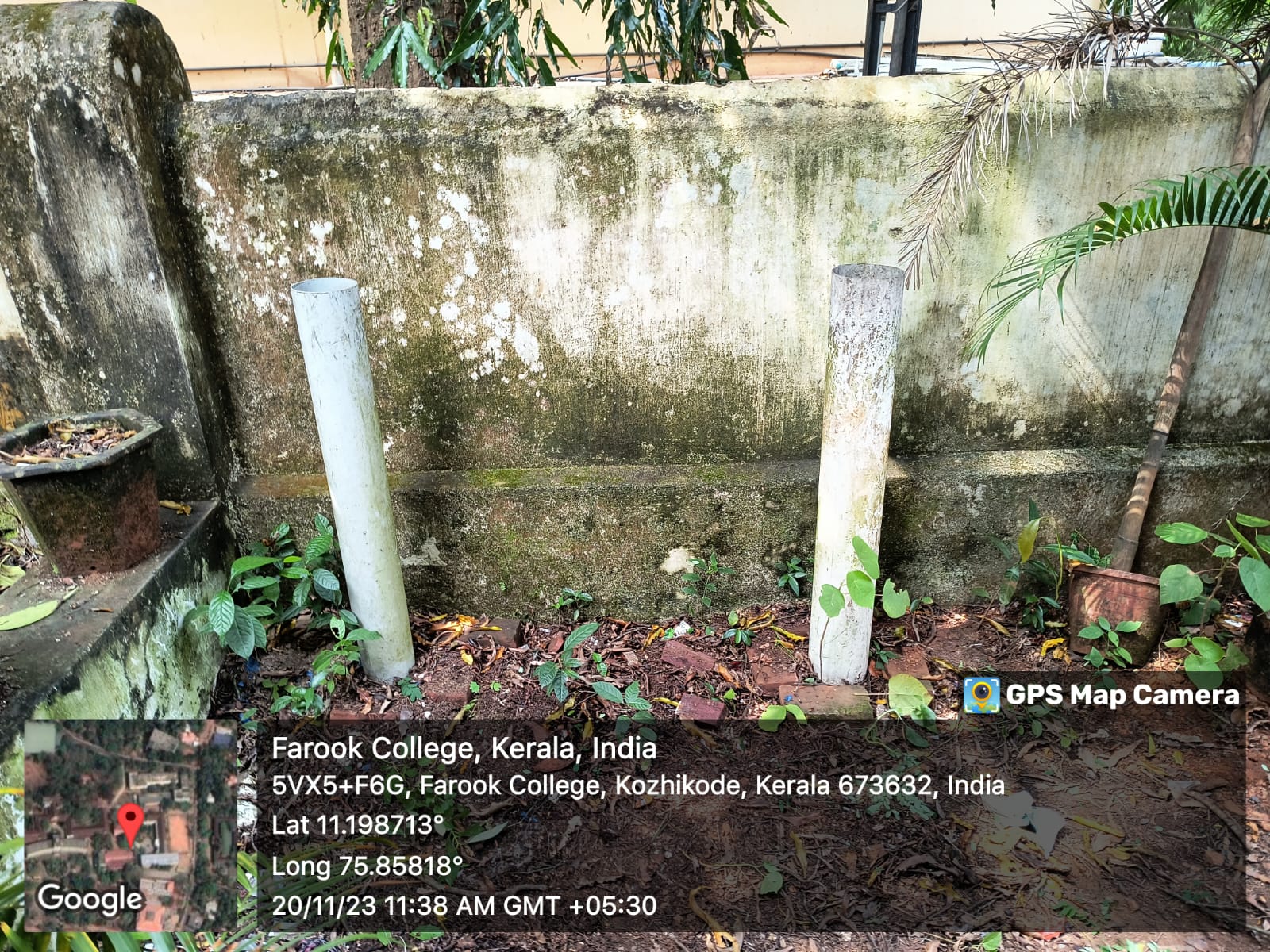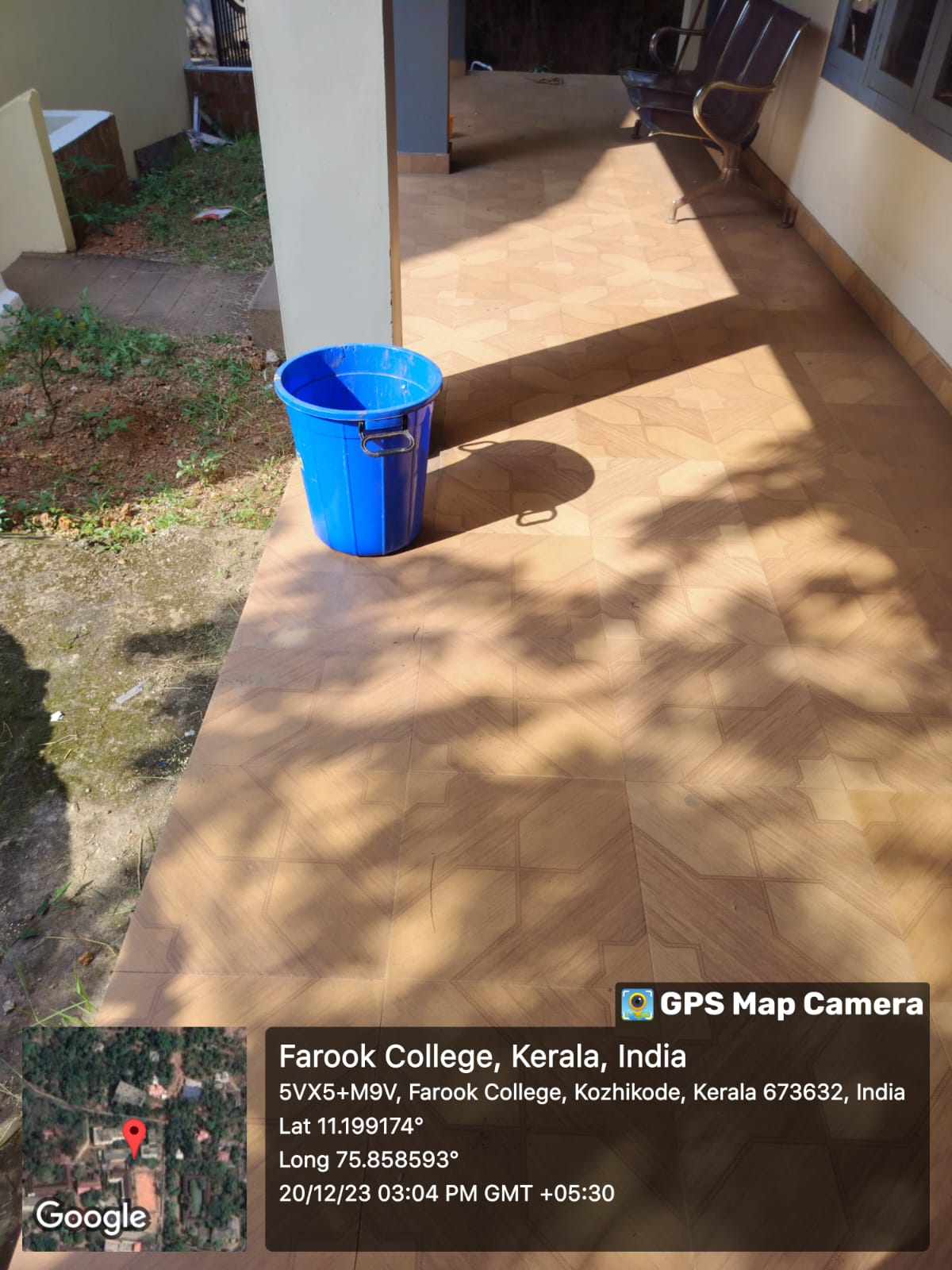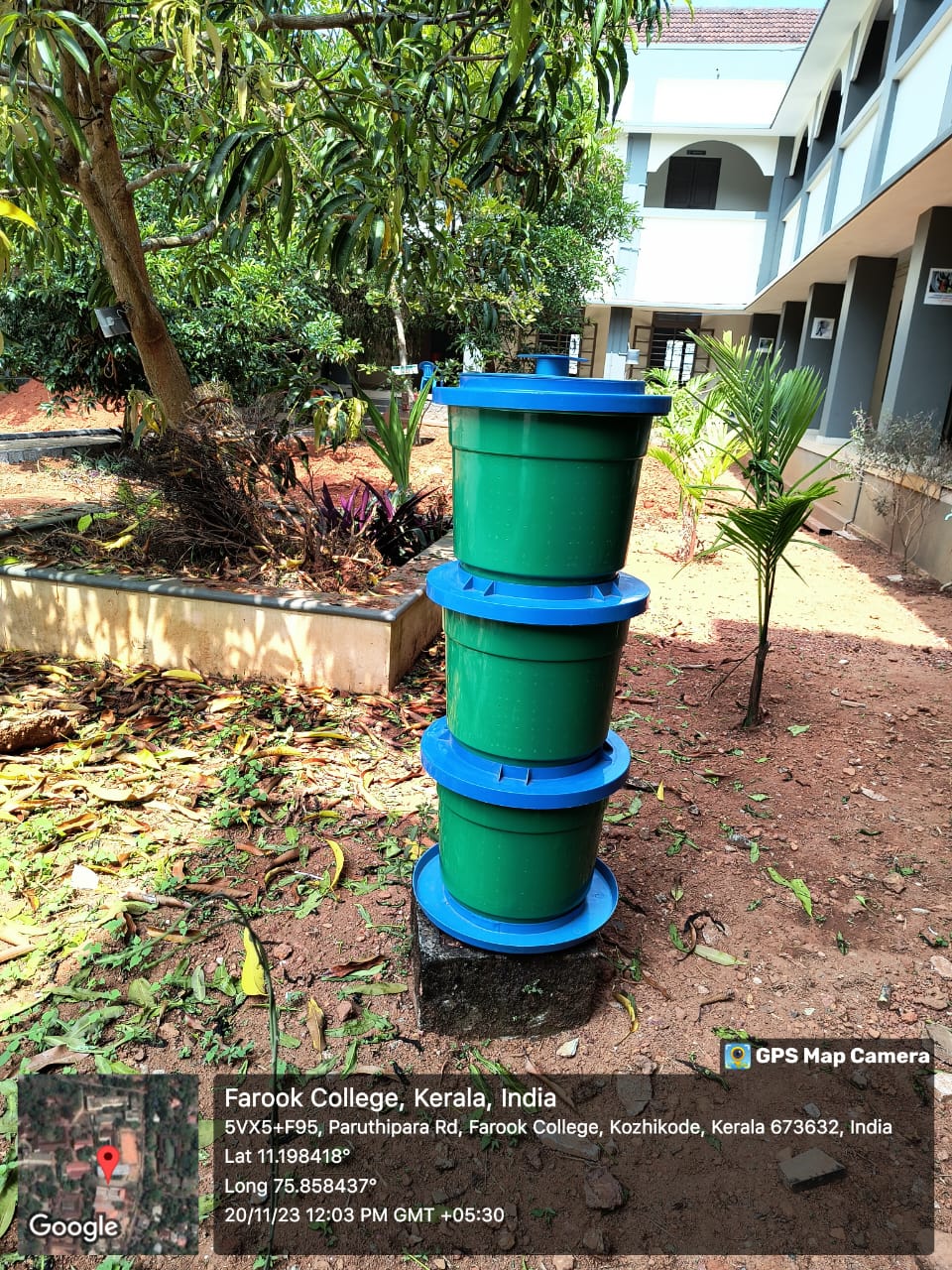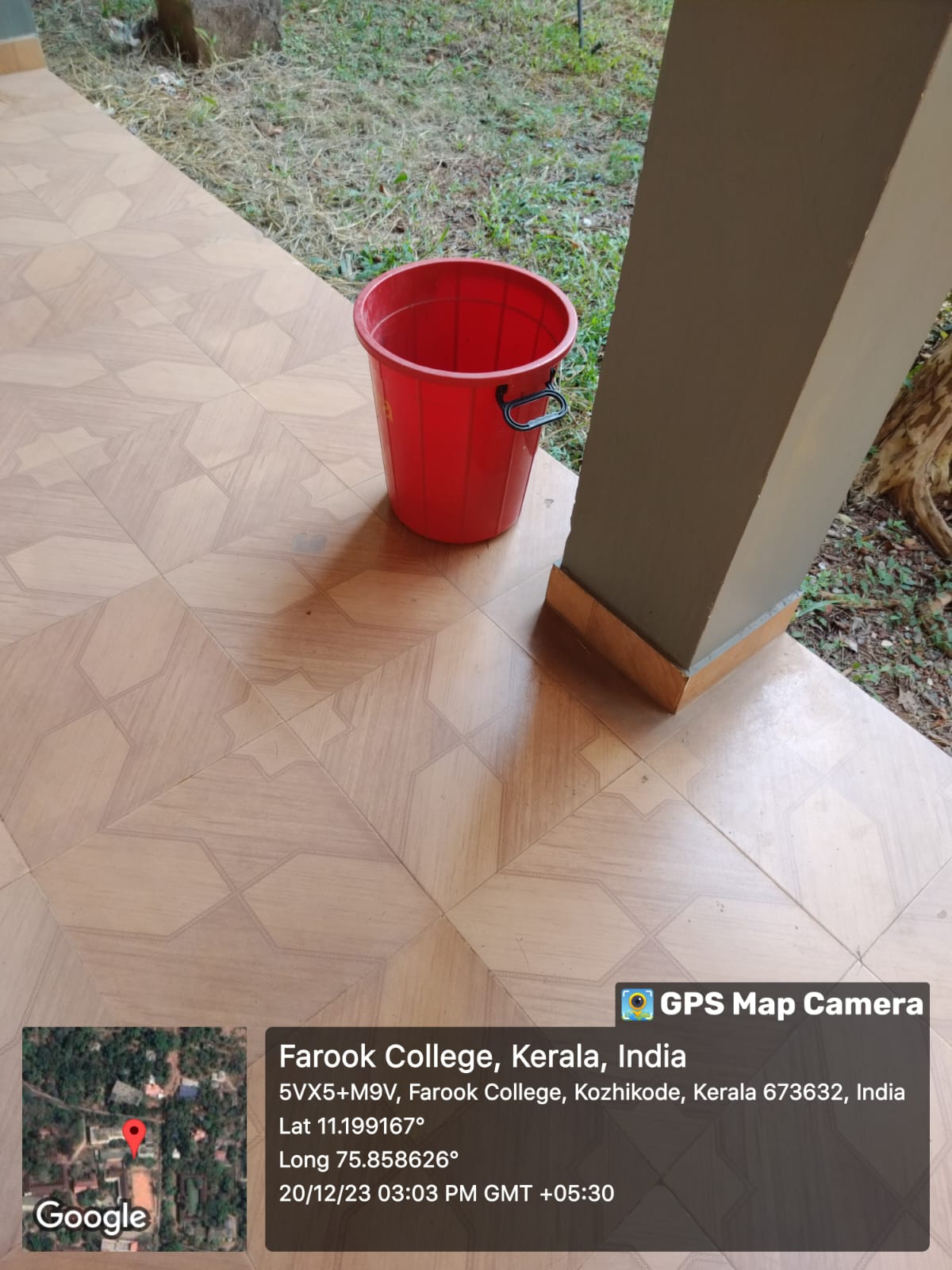Waste Management Policy
Introduction
Farook Training College is committed to minimizing waste generation and reducing environmental deterioration and pollution. We aim to provide a fresh and eco-friendly environment for all members of our institution. This Waste Management Policy is based on the core principles of waste management, which include reducing, reusing, recycling, and recovering waste products. All individuals within the college are encouraged to reduce waste creation, and the institution has established a dedicated Waste Management Cell to oversee these efforts.
Policy Guidelines
- The college's Waste Management Policy is guided by the following principles:
- Enhancing environmental consciousness among students and staff:
- Preventing pollution and minimizing waste generation.
- Taking mitigation measures to reduce waste.
- Promoting green practices and sustainable growth.
Objectives
The objectives of the Waste Management Policy are as follows:
1. To minimize the generation of all types of waste within the campus.
2. To fulfill the duties assigned by the Waste Management Cell as per the duty chart.
3. To promote environmental awareness among all stakeholders.
Organization and Management
The Waste Management Cell, headed by the Principal and comprising members of the teaching and non-teaching staff as well as students, is responsible for overseeing waste management efforts at Farook Training College. This cell focuses on raising environmental awareness, implementing mitigation measures, and promoting sustainable practices throughout the institution.
Action Plans
Farook Training College has adopted specific action plans for managing various types of waste:
a. Paper Waste
Implement paper-saving initiatives.
Encourage digital documentation and communication.
Promote double-sided printing.
b. Solid Waste
Implement waste segregation at source.
Create collection points for biodegradable, non-biodegradable, and e-waste.
Utilize vermicomposting for biodegradable waste.
Establish a duty chart for managing food waste.
Encourage projects related to sustainable development among students.
c. Non-Biodegradable Waste
Hand over non-biodegradable waste to scrap dealers for recycling.
Promote reusable glasses and cloth bags.
Prohibit flex boards and encourage digital displays.
Minimize plastic usage for student projects and food containers.
d. Liquid Waste
Utilize hand washing water for plant irrigation.
Channel washroom water into specially made pits.
e. E-waste
Implement a buy-back policy for electronic gadgets.
Donate outdated and unused electronic devices to the school.
Exhibit historical electronic devices in the Technology Hub's heritage corner.
Conclusion
Farook Training College is committed to maintaining a clean, eco-friendly campus through the effective implementation of this Waste Management Policy. We believe that by minimizing waste generation and promoting sustainable practices, we can contribute to a healthier environment and inspire environmental awareness among all members of our institution. Together, we can make a significant impact on waste reduction and sustainable growth.
Waste Management Committee
Chairman:
Prof. (Dr.) T Mohamed Saleem (Principal)
Convenor :
Dr. Afeef Tharavattath, Asst. Professor
Joint convenor :
Chair Person, College Union
Members :
Secretary, Managing Committee
Chairperson, Ramanattukara Municipality
Head Master, Model school, Farook College Campus
Principal, Farook TTI , Farook College
Dr Rekha P, Assistant Professor Farook training College
Office Superintendent, Farook Training College
Natura Members, Farook Training College



